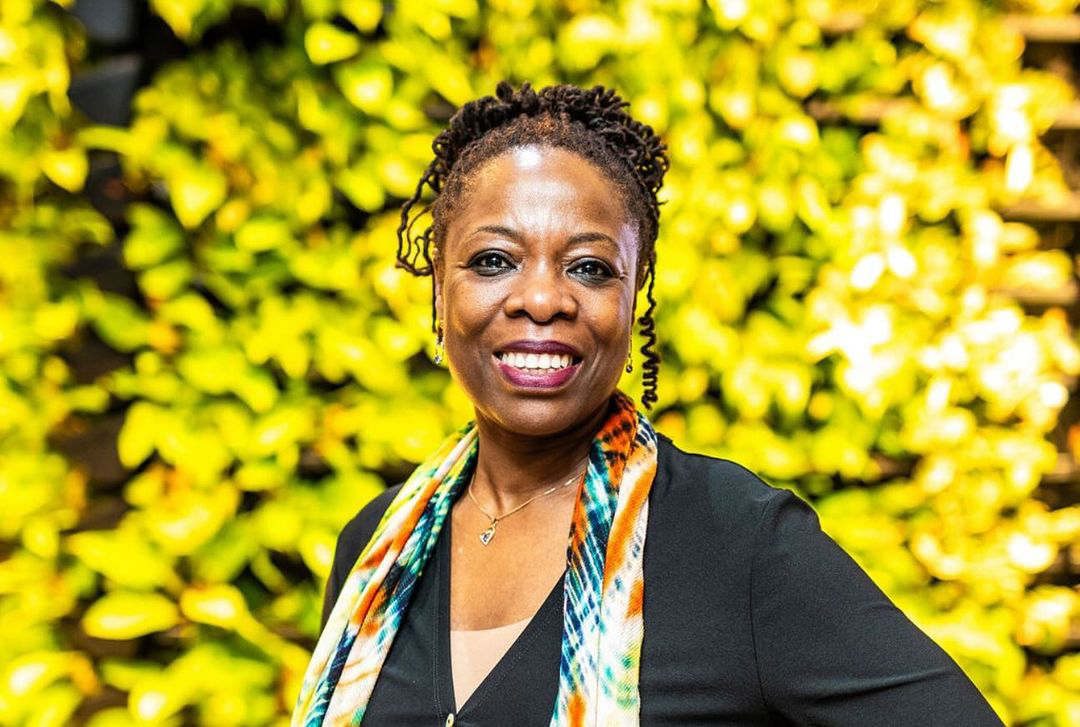
ACHENYO IDACHABA-OBARO TAKES TRADITIONAL SUSTAINABILITY ART GLOBAL
Meet Achenyo Idachaba-Obaro, the globally recognized entrepreneur behind innovative lifestyle and accessories made from waste materials. She shares her inspiring journey into the circular economy, motivated by the poor condition of Lagos’ lagoon waters.
Achenyo sought a sustainable solution to the invasive water hyacinth problem, transforming it into an opportunity to positively impact the lives of local communities. Beyond her global recognition as an eco-friendly activist, she details the intentional steps that have elevated Mitimeth to its current stature, showcasing her dedication to both environmental sustainability and social empowerment.
Her story is a compelling testament to the power of creativity and resilience in addressing pressing environmental issues while fostering economic growth.
1. Very pleased to meet you, Ma’am. Could you please provide a brief introduction of who you are and what you do?
My name is Achenyo Idachaba-Obaro, and I am the founder of Mitimeth, an enterprise based in Nigeria. We focus on transforming waste into innovative materials and building livelihoods. Our mission is to create thriving local communities while positively impacting the environment. We began working primarily with water hyacinth, an invasive aquatic weed found in many freshwater bodies across Nigeria, including Lagos. Over the past 13 years, we’ve expanded to include other types of waste materials, such as agricultural residues like coconut shells, plantain, and banana fiber, as well as non-timber resources like bamboo recovered from construction sites. We use these renewable resources to create lifestyle products and fashion accessories. Essentially, we are a part of the circular economy, recovering materials and transforming them into new products.
2. What inspired you to start creating handcrafted products? Was there a particular moment or experience that sparked your passion?
My journey has been one of continuous inspiration rather than a single moment. Before founding Mitimeth, I was involved in waste management consulting, working with academics to explore opportunities for waste recovery and beneficial use, including converting waste to energy. During this time, I encountered water hyacinth in Lagos. Although it wasn’t part of my initial projects, seeing the high infestation period on the lagoon sparked questions about its potential uses and challenges. Notably, the infestation prevented fishing boats from operating, highlighting a clear problem. This observation led to the genesis of Mitimeth. Over the years, we’ve discovered new opportunities and expanded our materials, resulting in a journey of co-creation and evolving products.
3. What brings out the uniqueness of your designs?
Our designs evolve through co-creation with artisans and clients who challenge us with new ideas. Even if we haven’t done something before, we embrace the challenge. Inspiration also comes from our environment and traditional heritage techniques. We explore how traditional practices, such as textile weaving, can be applied to different fibers. For instance, we might use a weaving technique to create home textiles instead of wearable ones. Understanding the fibers’ texture and durability through hands-on interaction helps us achieve the desired results.
4. Do you find it challenging to communicate your designs to the artisans?
Sometimes, but mostly no. We use an iterative process, starting with prototypes to ensure we’re getting the desired results before rolling out to the team. Training and knowledge transfer between the prototype lead, workshop supervisor, and artisans are crucial steps in this process.
5. What eco-friendly practices do you implement in your production processes?
We operate with a zero-waste mantra, ensuring we are judicious with resources. Our facility runs on solar power to reduce carbon emissions. We emphasize not being wasteful with natural fibers and materials. Being lean and careful with our resources ensures we’re not creating environmental problems while producing eco-friendly products.
6. What keeps you motivated to keep striving with Mitimeth?
Positive feedback and compliments, like those on our IG page, are motivating. When people love our products and purchase them, it validates our efforts and supports our social and economic impact goals. The demand for our products ensures that both the environment and the communities we work with benefit, creating a win-win situation.
7. How does your brand contribute to the economic growth of Nigeria?
We contribute by being an employer of labor and paying taxes. Additionally, we promote homegrown solutions to local problems, showing that our solutions, while tailored for local issues, have global appeal. Our participation in the handmade market extends beyond Nigeria’s borders, attracting international interest.
8. How does it feel to be recognized globally and to give advice on sustainability?
Being recognized globally is very affirming and encourages us to do more. It places a sense of responsibility on our shoulders to live up to our brand’s expectations. We feel blessed and thankful for the recognition, which motivates us to continue our work.
9. What are the challenges you faced when starting?
Truth be told, challenges crop up at different times and in different forms on the entrepreneurial journey. Building an enterprise from scratch without a blueprint manual meant I had to fail fast and recover quickly. I didn’t have a ready pool of skilled artisan resources to tap from, which was a challenge.
The solution was to skill the unskilled resources to fit the Mitimeth purpose. I also remember the challenge of finding workspace for my fledgling workshop and working out of my Dad’s office garage for a couple of years before I finally got a unit at the Technical Incubation Center (TIC) in Ibadan.
I was referred to TIC by the Director of the Centre for Entrepreneurship and Innovation at the University of Ibadan, Prof. Gbemi Oke at that time. If I hadn’t voiced my challenge to her, I would never have learned about TIC, let alone been referred. There were others, but none were “show stoppers” because I was determined to succeed.
10. What do you think is stalling the growth of Circular Businesses?
The growth of circular businesses is being stalled by infrastructural barriers to scaling both widely and deeply, a low value perception and awareness among consumers, limited opportunities for funding innovation, and the absence of circular procurement commitments from public and private sector organizations.
11. How many people does your eco-business currently employ, and what potential for employment do you think the sector has?
My business currently employs 17 people, including three interns on a six-month attachment. We also have over 150 home-based artisans who currently weave for Mitimeth.
12. What is your view of the market opportunity for the sector?
The market opportunity for circular supply and resource recovery is huge. The opportunities in natural fibers from agricultural residues are vast, but we need to improve infrastructure in our universities to support R&D efforts.
13. How do you measure how much waste your eco-business is taking away from the environment, and can you tell us how much emission your eco-brand has reduced?
We measure / extrapolate resources recovered based on the secondary raw material generated from waste. For example, 120,000 yards of woven water hyacinth rope translates to approximately 32 metric tons of fresh water hyacinth harvested from a water surface coverage area of approximately 760 km².
14. What advice would you give to anyone looking into the sustainable space?
Identify a problem and start small while dreaming big. Test things out and be patient with the process, as things take time. Working hard and being diligent is essential, especially in a challenging environment like Nigeria, where things may not happen overnight but can succeed with perseverance.
15. Is there anything upcoming from Mitimeth that you would like to share?
Watch this space! We have exciting developments in the pipeline, and we will keep you posted. We look forward to sharing more with you and amplifying our efforts together.


